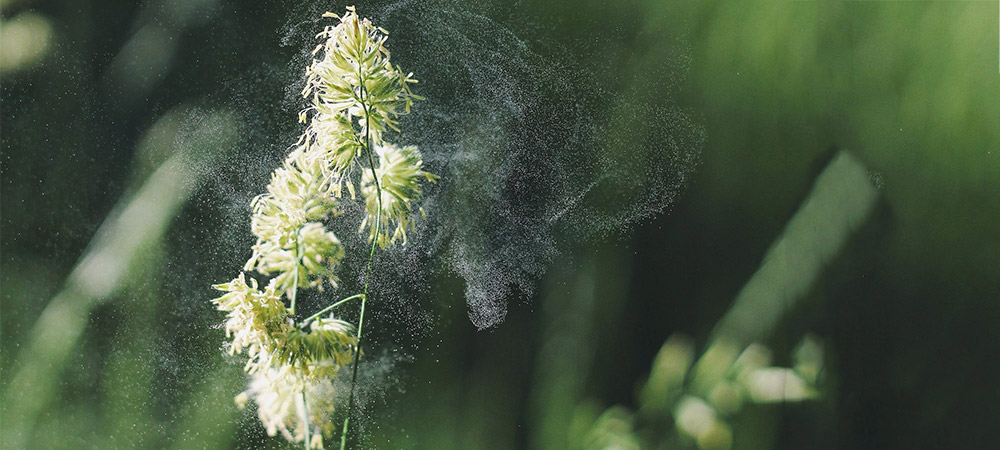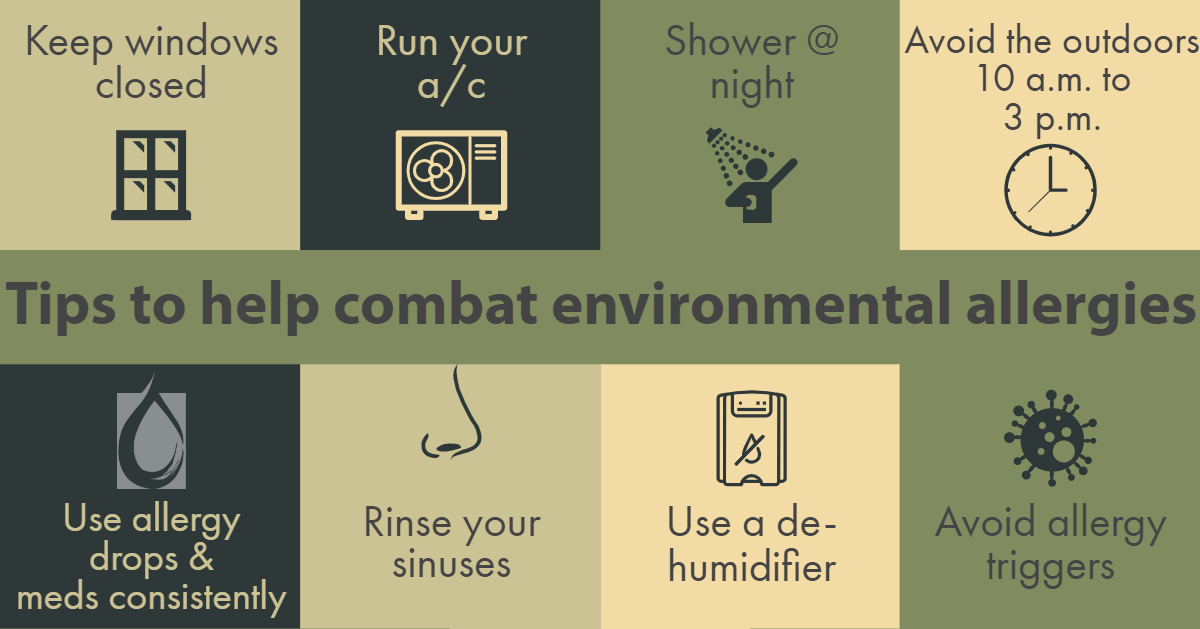Seasonal allergy symptom relief during allergy season

While pollen levels are on the rise, so are seasonal allergy symptoms. For some patients, seasonal allergy symptoms can still occur while the immune system is in the process of building their allergic tolerance using sublingual immunotherapy. For those who haven’t started immunotherapy yet, it can be even worse. To avoid days of miserable allergy symptoms during the heat of pollen season, here are some things you can do to lessen your coughing, sniffling, and sneezing.
Medications and other remedies
Mike Kachel, RPh, Allergychoices Pharmacy Director, offered a few suggestions to help allergy sufferers address temporary symptoms before long-term tolerance is built. In addition to taking your drops, Mike suggests taking over-the-counter medications or natural remedies to lessen your symptoms and provide relief, while still building your allergic tolerance. Some things to try are:
- Nasal spray and decongestants — Over the counter nasal sprays and decongestants can help alleviate your stuffy nose. You can also try a saline nasal rinse, like a neti pot, to clear out the sinuses.
- Antihistamines — When your body is introduced to pollens to which you’re allergic, it releases histamine that triggers symptoms such as sneezing, itchy, watery eyes, and sniffling. Antihistamine medications, such as Claritin and Alavert, reduce and block histamine to stop your body from having allergic reactions. It may be a good idea to take the non-drowsy antihistamines in the morning, especially if you are going to be spending the day outside.
- Salt water — Gargling salt water is a natural way to relieve an itchy, dry throat. Try using ½ to ¼ teaspoon of salt for every 8 ounces (1 cup) of warm water.
- Preseasonal allergy drops – Preseasonal sublingual immunotherapy treatment is an accelerated add-on treatment that’s used for those with severe seasonal allergy symptoms to weeds, trees, grasses, and dust mites before pollen seasons. The goal is to build tolerance to an allergen before the season begins, so that when pollens are at their worst, your sensitivity to that allergen is reduced through the boost of the preseasonal treatment.
Spending the day inside?
While most seasonal allergies are triggered outdoors, there are things you can do inside to keep your symptoms from flaring up.
- Take off your shoes — When you come inside, remove your shoes at the door to avoid bringing outdoor allergens inside and tracking them throughout your home.
- Close the windows — Keeping the windows closed will help to keep the outdoor pollens where they belong…outside. If you are able, try using the A/C instead.
- Use a dehumidifier — If you suffer from a mold allergy, using a dehumidifier will help to reduce mold growth in your home by removing moisture from the air. Humid environments are also a great breeding ground for dust mites, so keeping relative humidity below 50% can reduce dust mite growth. Try using a dehumidifier in areas you spend a lot of time in, like the bedroom.
Enjoying the summer sun outdoors?
If you know you are going to be spending the day outside, it is important that you prepare accordingly to avoid allergic reactions to outdoor pollens. Mike also offers a few tips to help make your day outside more enjoyable:
- Protective gear — If you plan on doing chores outside, such as gardening or mowing the lawn, wearing protective gear, such as sunglasses or a face mask; these can help keep the pollens from getting into your eyes or being inhaled.
- Avoid dry, windy days and morning — Pollen levels peak on dry, windy days and in the morning hours. If possible, try to spend time outside later on in the day, especially if you plan on exercising outside.
- Pollen counts — Many weather reports include pollen counts. If you know you are going to be spending the day outdoors, be aware of the pollen counts and plan accordingly, like taking medications. Not sure where to find pollen counts for your area? Visit the National Allergy Bureau website.
- Wash up — Washing your hands and face will help to clean any pollen you may have gathered outside. It may also be a good idea to wash your clothes as soon as possible after outdoor activities and tasks.
While seasonal allergies can be challenging, these tips and tricks can make building your allergic tolerance even easier. It is also important to make sure to take three doses of your allergy drops every day, so you can be on your way to allergy relief that treats the root cause of your allergy. Want to find a provider near you trained in custom sublingual immunotherapy?

